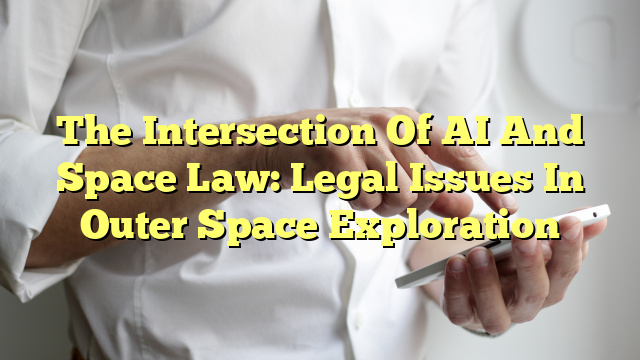Table of Contents
Introduction
With the rapid advancement of artificial intelligence (AI) technology, its impact on various industries is becoming increasingly significant. One area where AI is making a profound impact is space exploration. However, the intersection of AI and space law raises several legal issues that need to be addressed.
How does AI affect space exploration?
AI has revolutionized space exploration in numerous ways. It enables autonomous spacecraft and rovers to navigate and make decisions without human intervention. AI algorithms can analyze vast amounts of data collected from space missions, leading to more efficient and accurate analysis. AI also plays a crucial role in space communication systems, enabling real-time data transmission and enabling remote control of spacecraft.
The Intersection of AI and Law
The intersection of AI and law in the context of space exploration raises important legal questions. As AI technology becomes more advanced, issues related to liability, accountability, and responsibility arise. Who is responsible if an AI-controlled spacecraft causes damage or harm? How can AI decisions be audited and regulated to ensure compliance with international space laws? These are some of the challenges that need to be addressed.
Laws of Outer Space in International Law
Outer space exploration is governed by international space law, which includes various treaties and agreements. The Outer Space Treaty, signed in 1967, is the primary legal framework governing space activities. It prohibits the deployment of nuclear weapons in space, ensures the peaceful use of outer space, and promotes international cooperation in space exploration. Other treaties cover specific areas such as liability for damage caused by space objects and the rescue and return of astronauts.
Legal Restrictions on Using Force in Outer Space
International space law prohibits the use of force or military activities in outer space. The Outer Space Treaty explicitly states that outer space shall be used for peaceful purposes, and no nation can claim sovereignty over celestial bodies. However, with the increasing militarization of space, there is a need to further clarify and strengthen these legal restrictions to prevent the weaponization of space.
Conclusion
The intersection of AI and space law poses both challenges and opportunities for outer space exploration. While AI technology enhances the capabilities of space missions, it also raises important legal issues that need to be addressed. International space law provides a legal framework for space activities, but it needs to adapt to the advancements in AI technology. By addressing these legal issues, we can ensure the responsible and peaceful use of AI in outer space exploration.

